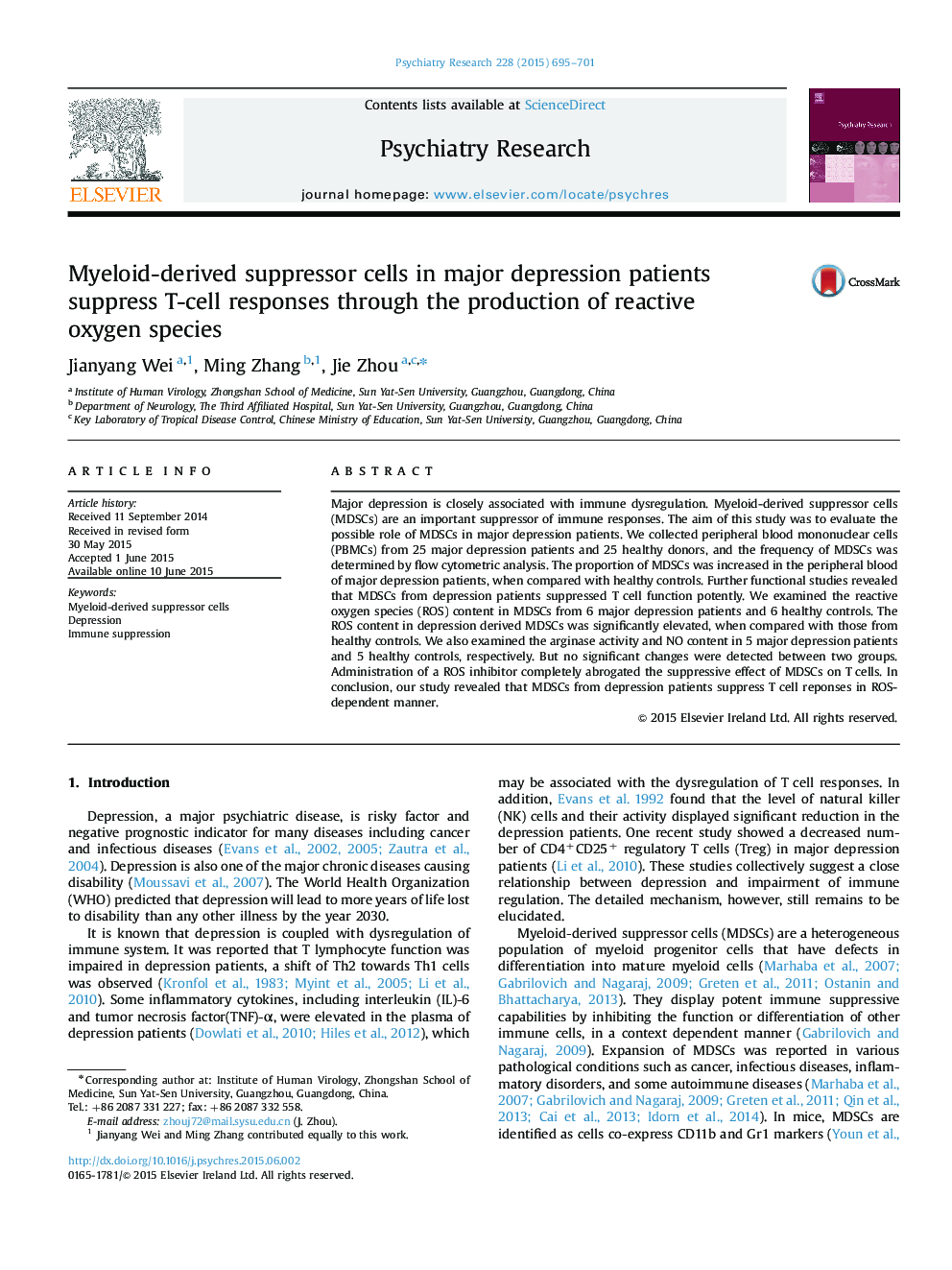| Article ID | Journal | Published Year | Pages | File Type |
|---|---|---|---|---|
| 10303728 | Psychiatry Research | 2015 | 7 Pages |
Abstract
Major depression is closely associated with immune dysregulation. Myeloid-derived suppressor cells (MDSCs) are an important suppressor of immune responses. The aim of this study was to evaluate the possible role of MDSCs in major depression patients. We collected peripheral blood mononuclear cells (PBMCs) from 25 major depression patients and 25 healthy donors, and the frequency of MDSCs was determined by flow cytometric analysis. The proportion of MDSCs was increased in the peripheral blood of major depression patients, when compared with healthy controls. Further functional studies revealed that MDSCs from depression patients suppressed T cell function potently. We examined the reactive oxygen species (ROS) content in MDSCs from 6 major depression patients and 6 healthy controls. The ROS content in depression derived MDSCs was significantly elevated, when compared with those from healthy controls. We also examined the arginase activity and NO content in 5 major depression patients and 5 healthy controls, respectively. But no significant changes were detected between two groups. Administration of a ROS inhibitor completely abrogated the suppressive effect of MDSCs on T cells. In conclusion, our study revealed that MDSCs from depression patients suppress T cell reponses in ROS-dependent manner.
Related Topics
Life Sciences
Neuroscience
Biological Psychiatry
Authors
Jianyang Wei, Ming Zhang, Jie Zhou,
